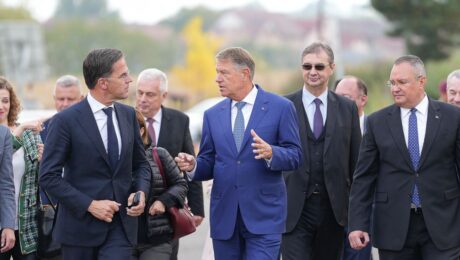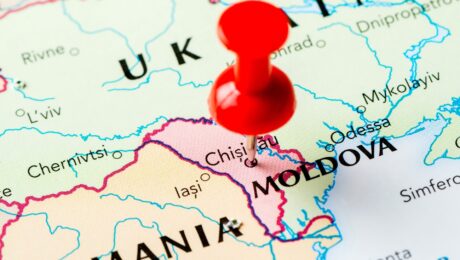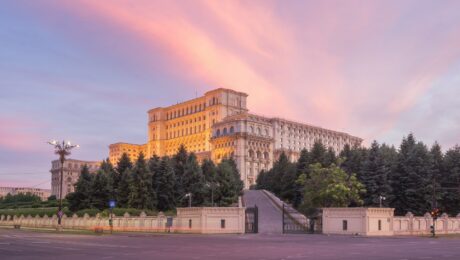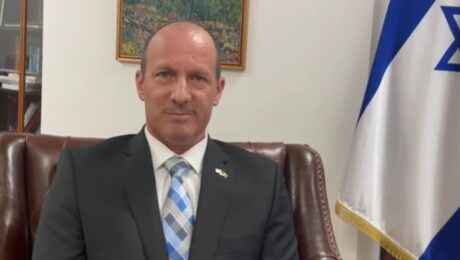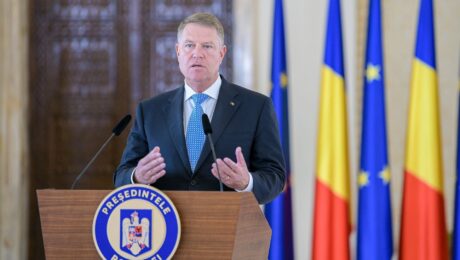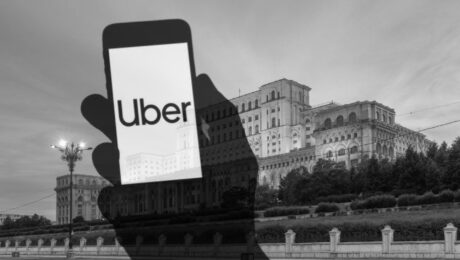Buying Accession to Schengen: Romania makes concessions again
Many questions remain after the contentious negotiations about Romania’s Schengen admission at the most recent European Commission meeting. Does Romania merit admission to the Schengen region or not? The majority of respondents said yes, while Holland said no.
Netherlands’ stance toward Romania leaves no room for confusion. The Netherlands maintained the same antagonistic stance regarding Romania’s Schengen membership for 11 years. They remained unconcerned with any improvement in Romania and openly opposed its accession.
Of course, problems don’t end there, as the Romanian MEPs have often noted, the Netherlands opposes Romania on every issue before the European Commission. But why?
The Romanian Fleet purchases two Dutch „Damen” ships for search, rescue, and firefighting operations in an effort to mend fences with Holland. The Dutch company Damen is going to design and build these cutting-edge warships in Galati and Braila, in Romania. The more peculiar aspect of the agreement was its completion precisely one day before the Dutch prime minister visited Romania and two months before Romania’s key referendum to join the Schengen region.
Romania still needed to meet several conditions before joining Schengen, according to Prime Minister Mark Rutte during his visit. Yet, he and the Netherlands are collaborating with the Ukrainian compatriots to join the EU and NATO, a public involvement that shows that the Dutch impudence knows no bounds.
The Dutch position on the Schengen extension is simple: when the requirements are met, accession is possible. To be able to assess this, we need up-to-date information from the European Commission on all relevant areas for political decisions on Schengen accession.
Mark Rutte, Dutch prime minister
In actuality, Dutch greed knows has no limits. Due to Romania’s refusal to grant them access to the Constanta port, a trade route that enables the transport of products between Asia and Europe, Holland rejected Romania’s bid to join Schengen. The Netherlands will oppose Romania’s entry into Schengen unless the country pays a bribe at the port of Constanta, similar to what the Austrians did in 2004 with Petrom, a significant organization that regulates Romania’s oil production.
Media reports claim that the Netherlands wants to take control of the Constanta port because it is strategically located at the crossroads of trade routes that link the markets of the landlocked nations of Central and Eastern Europe with Central Asia and the Far East and plays a significant role in the European intermodal transport network.
If this scenario is accurate, it’s entertaining to see how Western countries practice greedy economic and cultural imperialism while masking their behaviour as political correctness. Politically correct, anti-corruption and anti-discrimination rhetoric is a facade in Western countries when it comes to individual scopes and interests. Despite all of Romania’s efforts and accomplishments, the Netherlands vehemently opposes Romania’s entry into the Schengen region and will continue to do so until Romania once more bows its head to the West.
- Published in News
Diplomatic Controversy: Romanian Investors Association Not Invited to Moldova Business Week 2022
The relationship between Romania and the Republic of Moldova extends beyond the fact that they both have a similar historical and linguistic heritage. According to some, Romania is Moldova’s closest ally in the neighbourhood and the largest foreign investor in the sister state. Additionally, Romania is a very active member of the EU in helping Moldova become a part of the European economic community.
According to Valahia News, Moldova Business Week 2022, the most important economic event devoted to investors in the Republic of Moldova, would have been a fantastic opportunity for the Romanian Investors Association in Moldova (AIR) to fortify their relationships in the nation. Additionally, AIR would have had the chance to entice other Romanian businesses to invest in the sister nation. However, Moldovan officials didn’t consider it a priority to invite AIR to the event, a gesture that puzzled the Romanian Ambassador to Chisinau, HE Cristian-Leon Turcanu.
I noticed with surprise that AIR – Romainan Association of the Investors in Moldova is not part of Moldova Business Week 2022, a large-scale event dedicated to business, given that the direct investments of the 30 AIR members represent over 54% of foreign direct investments in the Republic of Moldova in the last 10 years.
HE Cristian-Leon Turcanu on the diplomatic blunder of the Moldovan officials
Companies from #Romania present in the Republic of Moldova have created over 10,000 jobs and have a total turnover of almost 1 billion euros.
Romania remains the main commercial partner of the Republic of Moldova, and the prospects for development are particularly good.
Dan Nutiu, the president of AIR, said that he was surprised by this diplomatic gaffe but added that the Republic of Moldova had also declined to invite the Association in 2021.
We cannot explain the reason for our absence from the event. Probably, the current format was established before the change of the management of the Investment Agency. We were not invited to last year’s edition either, and probably the same format was kept. It was probably a minor mistake on their part this year and I can’t explain the reason for the absence. It is a message that gives us reasons for concern, in the context in which Romania is the main economic partner of the Republic of Moldova
Dan Nutiu, the executive president of AIR, cited by Deschide.md
It appears highly likely that Moldovans are reluctant to praise Romanian investments in their nation because of the close vicinity of the situation in Ukraine. Hence the alleged diplomatic error and „lack of communication.” The Romanian ambassadors in Chisinau and the Romanian investors in the Republic of Moldova could start learning Russian immediately if they could not communicate in Romanian.
- Published in News
Russia Expels Another Romanian Diplomat
Russia expels another Romanian diplomat in response to a similar decision taken by the authorities in Bucharest.
According to Serghei Lavrov, the Russian Foreign Affairs minister, the decision was made in response to Romania’s action to expel a Russian diplomat. In return, Cosmin Constantin Ionita, Romania’s charge d’affaires in Russia was declared a non grata person.
On September 8, Romania’s chargé d’affaires in the Russian Federation (prime collaborator, according to the Bucharest MAE website), Cosmin Constantin Ioniţă, was invited to the Russian Ministry of Foreign Affairs, where he was handed a note from the ministry regarding declaring an employee of the Romanian Embassy in Russia as „persona non grata”.
Serghei Lavrov, the Russian Foreign Affairs minister.
For its part, the Romanian Ministry of Foreign Affairs says that the declaration by the Russian Federation as persona non grata of a representative of the Romanian Embassy in Moscow is a reciprocity measure compared to the declaration as persona non grata on the territory of Romania, announced by the Romanian MFA in August, of a representative of the Embassy of the Russian Federation in Bucharest.
As early as March, Romania, along with all the EU states, the USA and Great Britain, was put by Russia on the list of „countries unfriendly to Russia.”
In April 2022, Romania announced that it had expelled ten Russian diplomats following the Bucha genocide. In August, the Romanian MFA expelled another diplomat from the Russian Embassy in Bucharest.
Moscow then said it would respond „adequately” to Bucharest’s decision.
- Published in News
Romanian National Bank: Foreign Investments Up To 21%
According to the Romanian National Bank, the first half of 2022 recorded a 21% growth in foreign direct investments in Romania.
Comparatively to the same period in the previous year, the current account deficit for the balance of payments increased to EUR 12,298 million from January to June 2022. The breakdown shows a EUR 487 million increase in the services surplus, a EUR 1,349 million increase in the primary income deficit, and a EUR 44 million decline in the rest on secondary income. The trade-related debt climbed by 4,189 million euros.
A total of 4,379 million euros were invested directly by non-residents in Romania from January to June 2021 (up from 3,605 million), with equity (including the expected net reinvestment of earnings) and intercompany lending recording net values of 3,115 and 1,264 million euros, respectively.
According to Valahia News, between January and June 2022, the total amount of external debt climbed by EUR 2,645 million. At the end of June 2022, the long-term foreign debt stood at EUR 93,691 billion (68.3% of total external debt), a decrease of 3.6% from the previous year. Short-term external debt increased by 16.3% from 2021 to EUR 43,571 million, or 31.7% of total external debt.
The long-term external debt servicing ratio from January to June 2022 was 15.5%, compared to 16.4% in 2021. At the end of June 2022, the import cover for goods and services was 4.3 months, down from 4.9 months at the end of 2021.
The foreign exchange reserves of the National Bank of Romania were 76.4% of its short-term external debt by remaining maturity at the end of June 2022, down from 81.9% at the end of 2021.
- Published in News
New Ambassador of Israel to Romania
The new State of Israel’s representative in Romania is the diplomat Reuven Azar. He arrived in Bucharest after David Saranga’s mandate to the country ended.
Career diplomat Reuven Azar most recently headed the Israel-US-China working group at the Israeli Foreign Ministry. From September 2021 to August 2022, Azar was the foreign policy advisor to the Prime Minister of the Government of Israel and the deputy national security and foreign policy adviser to the National Security Council.
From 2014 to 2018, Reuven Azar held the position of deputy ambassador to the United States. Prior to this position, he oversaw the Israeli Foreign Ministry’s Middle East Research Division while serving as the deputy ambassador to Jordan in Amman.
According to Valahia News, during his activity, the diplomat has worked with cooperation and negotiating issues with the Palestinian Authority. In addition, he served as the director of the Israeli Embassy’s Economic Mission in Cairo, Egypt (1996–2000), and a political affairs advisor in Washington, USA, for four years (2003-2006).
Reuven Azar is fluent in English, Spanish, and Arabic and holds a master’s degree in international affairs from the Hebrew University of Jerusalem. He is also currently studying Romanian.
- Published in News
Oxford Analytica: President Klaus Johannis Deteriorates Democracy in Romania
President Klaus Johannis is weakening Romania’s pluralist democracy. The anti-democratic actions taken by the president of Romania during his administration are highlighted in recent research by the British think tank Oxford Analytica.
The report’s authors claim that Klaus Johannis’s standing in society has significantly declined.
Johannis speaks little, and his public appearances have steadily decreased. His advisors stay out of the public eye and are believed to come from the business and intelligence world. (…) President Klaus Johannis’ popularity is now in freefall, as his attempt to reduce the influence of Parliament by allowing the purge of anti-corruption judges and bringing military figures into politics seems to be backfiring. His efforts in 2021 to forge a coalition between two typically rival parties that hold a parliamentary majority have undermined competitive politics and scrutiny of government actions.
Oxford Analytica
According to Valahia News, the attitude of President Klaus Iohannis toward the armed forces and intelligence agencies raises questions about the viability of democracy in Romania. The study focuses on the PNL-PSD (National Liberal Party and Social Democratic Party) case, in which the president’s involvement in severing the alliance between the PNL and USR (Save Romania Union) and forging the coalition between the PNL and PSD—two typically rival parties—which holds the majority of seats in Parliament—was responsible for the rise in corruption in Romania. The data also shows that his attempts weakened control over government operations and competitive policy.
President Klaus Johannis renounces his role as a mediator between state bodies and between the state and society. Fears are growing that a disorderly, sometimes chaotic, yet identity-pluralist system is being replaced by a monolithic version where corruption and inefficiency continue to thrive but without meaningful checks and balances.
Oxford Analytica
According to experts, his ambition to lessen the power of the parliament, permit the removal of judges who investigate corruption cases, and involve military leaders in politics raises concerns about Romania’s democracy.
The research included several crucial subjects, including the army’s and the secret services’ strong influence on Klaus Johannis and Nicolae Ciuca’s government; abandoning all reforms; ending the battle against corruption; intimidating anti-corruption judges; and buying media.
Oxford Analytica claims that Romania’s legal troubles could result in large financial cuts from the EU and that Schengen membership is „unlikely” to occur. British academics also claim that Romania wants to bolster its secret services to keep an eye on international investments there. The analysis gives the legislative proposals about the secret services a lot of attention and shows that the drafts were developed by intelligence service personnel (a problematic legal act) with the knowledge of the President’s and Prime Minister’s offices.
Photo Source: Klaus Johannis Facebook
- Published in News
Uber Files: Broken Laws and Secret Lobby with the Government
Secret communications within Uber, the American behemoth that has changed passenger transportation worldwide, expose illegal expansion strategies into other markets.
Recent events revealed a big scandal regarding the Uber Company. The Guardian revealed secret documents on how tech giant Uber broke the law, conned the police, took advantage of violence against drivers, and clandestinely lobbied governments during its ambitious global development.
In order to operate the powerful machinery of policymakers, the firm has spent a large quantity of money to hire an army of outside consultants.
More than 100 politicians and decision-makers from 17 different countries, including Emmanuel Macron and Joe Biden, as well as members of the European Parliament and European Commission representatives, were met by Uber representatives between 2014 and 2016. Representatives of Uber sought political backing at the highest levels in Romania as well.
Uber has „collaborated” with many top politicians in Romania to change legislation. Emails from the Uber office in Romania identifying the lawmakers who need to be contacted were included in the records.
Lobbying in Romania
In Romania, professional lobbying is just getting started, but like everywhere else, the largest volume of influencing activity is made by trade associations, corporations, non-governmental organizations (NGOs), civil society, syndicates, employer unions, think tanks, lawyers, and other individuals and groups. The law governing lobbying in Romania was drafted there. The legislative initiative defines lobbying as „any contact person organized and structured to exert influence on public representatives in the interest of a client.” Controlling lobbying activities is a prominent aspect of Romania’s political process and is a constitutionally protected right.
However, Uber wanted to impose the cab-hailing service in Romania and worldwide, even if it meant breaking the law and going against taxi rules.
The data reveals how Uber attempted to win back support in Romania by covertly contacting political figures and high-position leaders.
About the Uber Files investigation in Romania
Uber has been touted as a leader in the digital revolution, yet it has turned to outdated methods to win over powerful politicians.
Since 2015, when Uber started operating through a subsidiary in Romania, Uber has managed to amend the law on the prohibition of passenger transport for a fee without a taxi license into the regulation of all passenger transport operations urban-type.
According to a Rise Project investigation, the man who could ensure the connection between Uber and the political area was Peter Imre, who died in the meantime. Peter Imre was the director of Adevarul Holding and an influential local consultant with multiple political connections in Romania.
Through Peter Imre, Uber was able to appeal to the Minister of Transport Ioan Rus, with Iulian Matache, Secretary of State in the Ministry of Transport, Mircea Toader, the Vice President of the Transport Committee in Parliament, responsible for amendments to the taxi law, Catalin Popescu-Tariceanu, Senate President, Bogdan Chiritoiu, the president of the Competition Council, Sorin Grindeanu, the minister for the Information Society, and many others, to convince them to appoint a parliamentarian from each party to introduce the legislative changes that Uber needed.
In 2015, as the local cab faced growing customer dissatisfaction and piracy, Uber entered the contest to dominate the Romanian market. When Uber’s operations in Romania were not regulated, taxi drivers began to demonstrate, and some professional associations filed lawsuits for unfair competition.
At the moment, the Uber files case is under investigation, it is not known who will be prosecuted, but according to the journalists, there are many charges in high positions.
- Published in News
Romanian Foreign Investors Against Removing The Single Tax Rate
Numerous organizations that unite American, French, German, and Romanian investors urge the Government to preserve a single tax and reinstate the tax system in order to promote economic growth.
In the context of the Social Democratic Party’s demands that the Government rethink its budgetary policy and give up the single quota, the major organizations in the business environment are opposed to removing the single tax, considering it a simple tax system and essential for economic growth.
The business environment also suggests: increasing tax collection and combating tax evasion through harsher sanctions and controls in areas where problems are identified; reevaluating the framework in which microenterprises and PFAs are used in Romania.
As long as they are used in good faith, in a truly entrepreneurial manner, and not to conceal employment arrangements, these are advantageous and acceptable forms of organization.
Foreign Investors Council, press release
Identifying the key industries that the Government wants to promote while taking into account Romania’s interest and the medium- and long-term perspective, relocating the tax system to stimulate work, bring black and gray work to the surface, decrease employee departure, and bring Romanians abroad home are other recommendations (boosting the export of high value-added goods and services can help reduce the trade deficit).
At the same time, the economic climate views it as essential to make any change to public policies after transparent engagement with all parties involved. To establish the groundwork for a long-term, transparent, digital, and predictable tax system, the business community also affirms its openness and willingness to communicate with the authorities.
The recommendations come from the Council of Foreign Investors (FIC), the American Chamber of Commerce in Romania (AmCham), the French Chamber of Commerce in Romania (CCIFER), the Romanian-German Chamber of Commerce and Industry (AHK), the CONCORDIA Employers’ Confederation, the Association of Foreigners Romanian Business Leaders (RBL), Romanian-British Chamber of Commerce (NRCC), Romanian-British Chamber of Commerce (BRCC), Hellenic-Romanian Bilateral Chamber of Commerce (HRCC), Belgian Chamber of Commerce, Luxembourg, Romania and Moldova (BEROCC).
- Published in News
New President of the Constitutional Court Elected
On June 11, Marian Enache was elected Constitutional Court (CCR) president. The vote was held in private after the new CCR judges took their oath before Romania’s president, according to a press release from the organization.
Mihaela Ciochină, Laura-Iuliana Scântei, and Bogdan Licu, the three judges of the Constitutional Court (CCR), were sworn in in the Cotroceni Palace. They have a nine-year term in office.
I wish the new constitutional judges much success. Congratulations, and I want you to do as you swore. It is a job of great responsibility, and I am convinced you will do it successfully. Likewise, I wish a lot of success to the constitutional judges who continue their mandate. Together, I want you to ensure compliance with the Constitution and be a balancing factor in Romanian society.
Klaus Iohannis, Romania’s President
This choice is controversial because of the history of the current president. So, who is Marian Enache?
Marian Enache served in many roles, including deputy, presidential adviser, ambassador, and judge.
Marian Enache (67 years old) is a familiar face in the local political arena, having been elected representative of Vaslui on the National Salvation Front’s lists in the May 20, 1990 elections. Then, from 1996 to 2000, and again from 2012 to 2016, Enache served in Parliament as a deputy.
Marian Enache served in many capacities, including deputy, presidential adviser, ambassador, and judge.
During his political career, Enache has been a member of five parties.
Marian Enache served as a deputy, presidential adviser, ambassador, and judge in the United States.
In 1993, he was appointed Romania’s ambassador to the Republic of Moldova, serving as a prezidențial adviser on legal issues to President Ion Iliescu. His career was shaken by a significant controversy in 2009 regarding his ties to the communist police. Marian Enache had a network file at the time, according to the National Council for the Study of Security Archives, but the file no longer exists in the CNSAS archives.
Judge Marian Enache earns about EUR 14,150.00 (70,000 lei) every month.
Marian Enache’s estate consists of four plots of land: three in Gorgota commune (Prahova county), each measuring 2,238 square meters, 2,288 square meters, and 1,800 square meters, and one in Corbeanca commune (Ilfov county), measuring 1,116 square meters.
Enache additionally receives EUR 19,500.00 (96,936 lei) annually from the Chamber of Deputies under the heading of old-age allowance. Enache, the prominent character in Vaslui during the December 1989 Revolution, obtained the indemnification of a revolutionary until recently, which does not appear in the judge’s most recent declaration of fortune.
- Published in News
President Emmanuel Macron Visits Romania
The French President, Emmanuel Macron, will visit Romania at the military Base 57, Mihail Kogalniceanu in Constanta, on June 14.
At Mihail Kogălniceanu’s 57th Base, which oversees a NATO fighting force, France has some 500 soldiers and a missile system. On June 15, Macron will pay them a visit at the Military Base before travelling to Chisinau, the capital of the Republic of Moldova.
At the Mihail Kogalcineanu base near Constanta, Romania’s main Black Sea port, which has become extremely important since the start of the war, Defense Minister Sébastien Lecornu will be welcomed with Foreign Minister Catherine Colonna.
To strengthen NATO’s „position of deterrence and defence on Europe’s eastern flank,” the French president will be greeted by Romanian Prime Minister Nicolae Ciuca and meet with representatives of the Aigle mission. In the nation, France has constructed a state-of-the-art ground-to-air defence system.
According to Valahia New, president Emmanuel Macron will deliver a solid commitment to NATO allies and European partners after Romanian President Klaus Johannis visit the NATO base on June 15.
Since Jacques Chirac visited Romania in 1998, Emmanuel Macron has been the second French president to visit Romania. The president said that the country most impacted by Russia’s invasion of Ukraine, with which it shares a border, will get „direct solidarity (from) France,” the president said. Additionally, France is providing material and financial support to the Republic of Moldova, which has demonstrated „exceptional solidarity” by accepting nearly 480,000 Ukrainian migrants and the remaining 80,000.
According to French officials, the president of France’s visit purpose to Romania and the Republic of Moldova is to show his support for those nations who are the most impacted by the situation in Ukraine.
- Published in News

